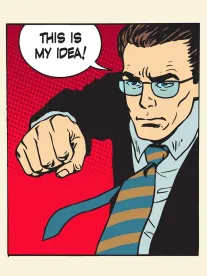In a recent opinion out of the District of Massachusetts, the court ordered that a patent infringement dispute between two Massachusetts-based competitors in the lighting systems industry would be allowed to proceed. This was despite a challenge to the sufficiency of the pleadings in the patent owner’s complaint.
The patent owner, Sunrise Technologies, asserted a patent directed to the monitoring and control of systems such as lighting systems through the formation of a mesh network of wirelessly linked communication nodes mounted to utility poles. Sunrise alleged that defendant Cimcon Lighting infringed the patent directly, indirectly, and contributorily through the manufacture, sale, and marketing of its competing line of lighting controllers. Sunrise also made a willful infringement allegation against Cimcon.
In ruling on Cimcon’s motion to dismiss, the court was confronted with Cimcon’s contention that Sunrise’s complaint failed to meet the Twombly/Iqbal pleading standards because it followed the Form 18 pleading standard, a form that was abrogated last year from the Federal Rules of Civil Procedure. For its part, Sunrise argued that its action was filed prior to the rule abrogation, and any changes to the applicability of Form 18 pleadings should not be applied retroactively.
The applicable United States Supreme Court order implementing the Form 18 abrogation provided that not only would the change apply to all proceedings commenced after December 1, 2015, but also to all pending proceedings “insofar as just and practicable.” After considering this language and somewhat conflicting guidance from federal courts across the country, the court concluded that the pleading requirements of Form 18 were not applicable to Sunrise’s claims, finding that application of the stricter Twombly/Iqbal pleading standard was “just and practicable,” in part because at least Sunrise’s amended complaint was filed months after the abrogation of Form 18.
Nonetheless, most of Sunrise’s infringement claims survived the motion to dismiss, even under the stricter Twombly/Iqbal pleading standard. With respect to direct infringement, over Cimcon’s contentions that Sunrise failed to allege that it practiced certain of the claim terms, the court accepted Sunrise’s allegations with respect to these terms as true at this stage, in accordance with Twombly/Iqbal, and determined that the amended complaint’s factual allegations were sufficient to put Cimcon on notice of the claims against it. The court split on indirect infringement, dismissing Sunrise’s claim for contributory infringement because it failed to sufficiently plead that there exists no substantial non-infringing uses for the product. The court at the same time found that sufficient facts had been pled to support Sunrise’s inducement claim. Sunrise’s allegations of continued direct infringement after it placed Cimcon on notice of the claims against it was also found sufficiently pled by the court.
The case is Sunrise Technologies, Inc. v. Cimcon Lighting, Inc., Civil Action No. 1:15-cv-11545-NMG (D. Mass.), before Judge Nathaniel M. Gorton.



 />i
/>i

